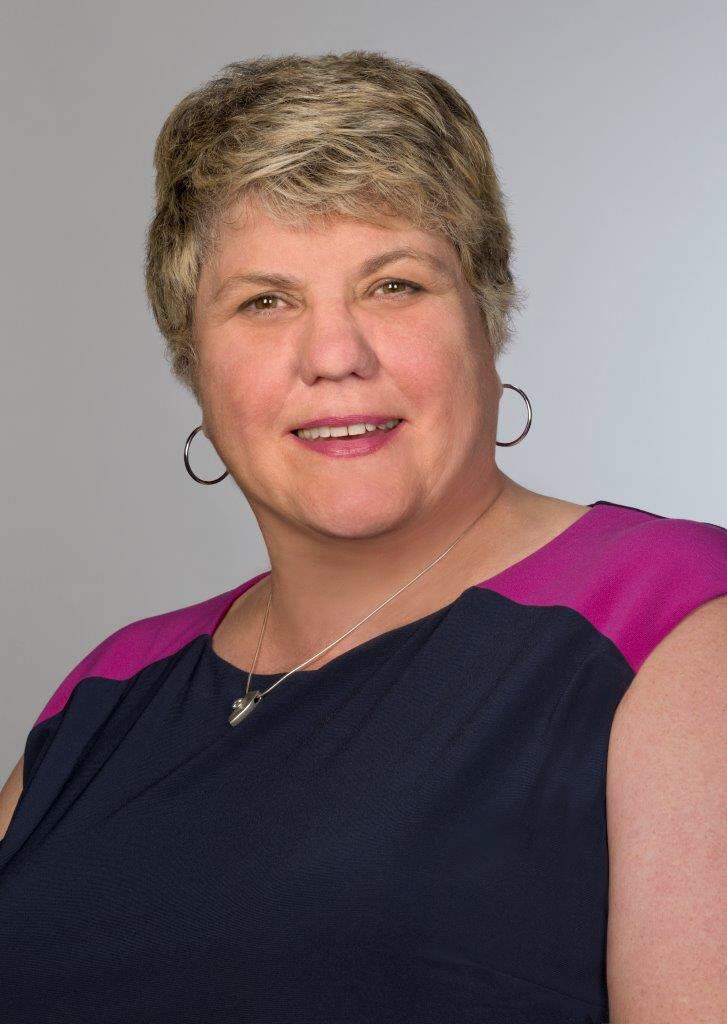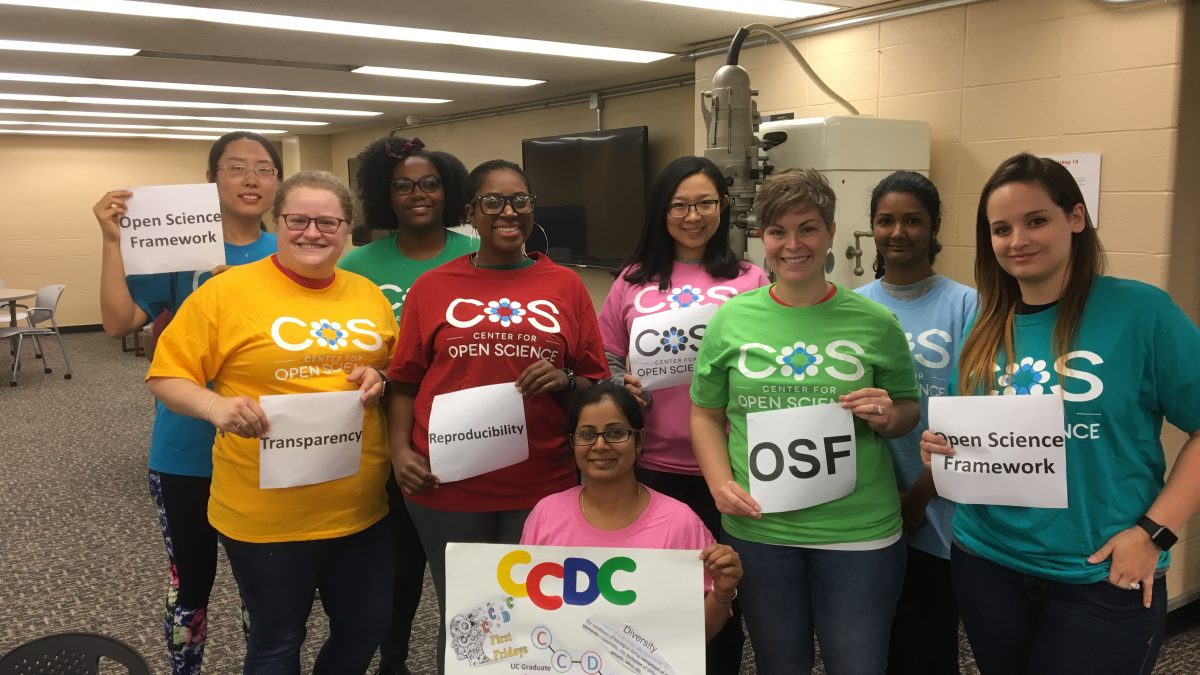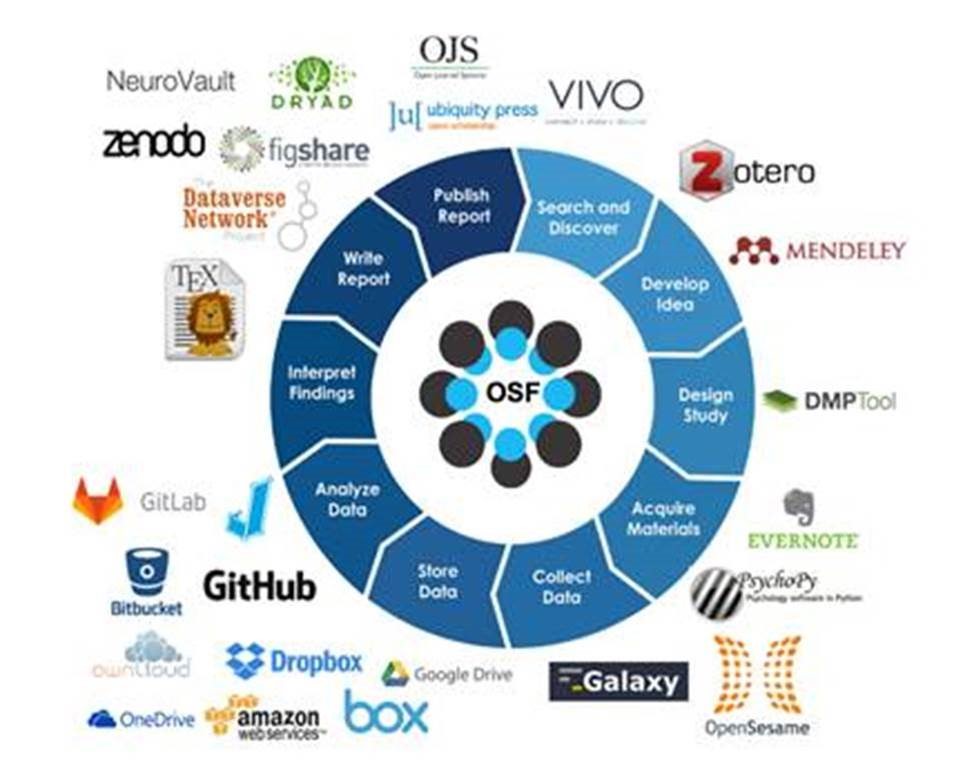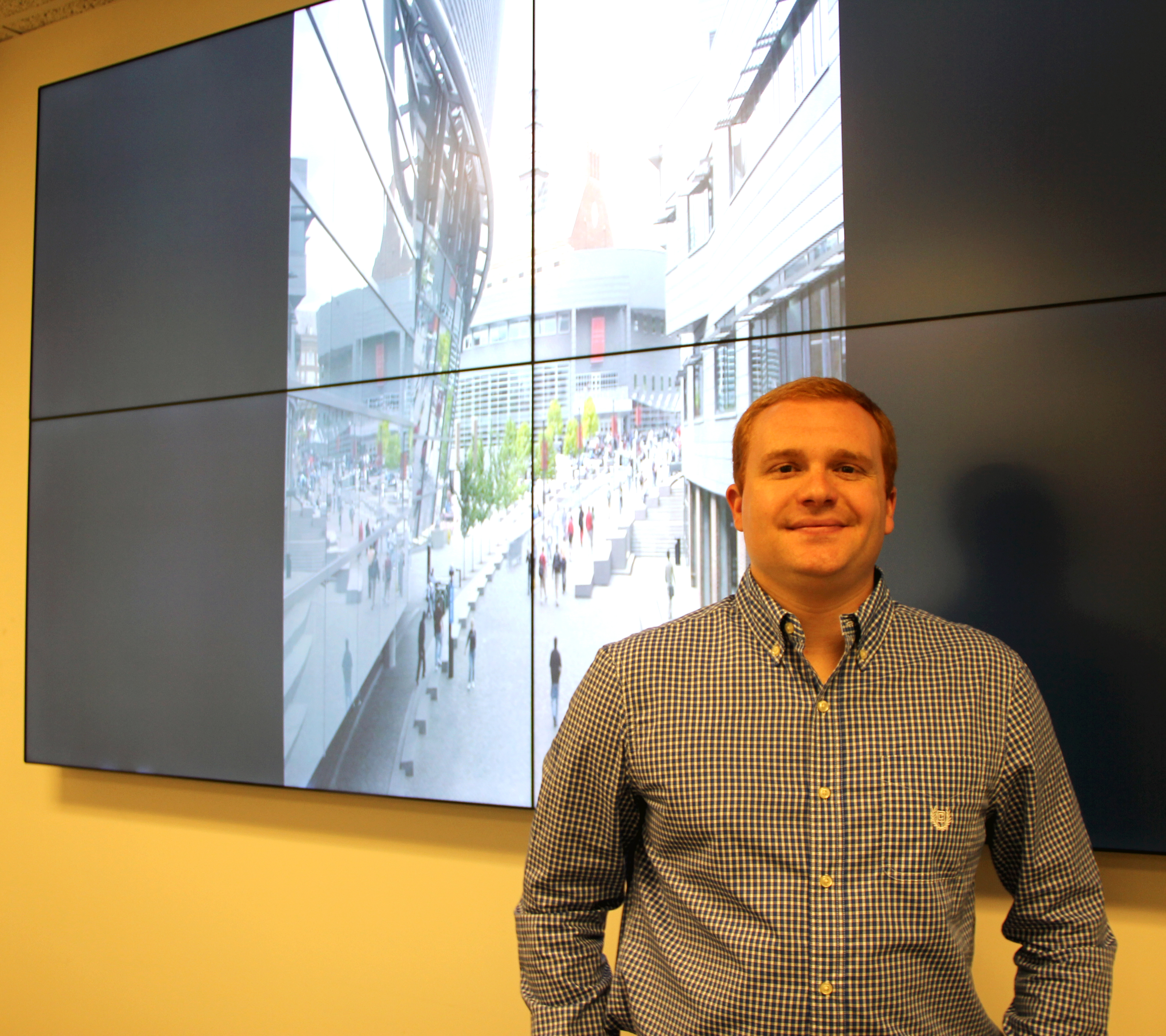
Richard poses in front of the Visualization Wall.
On Monday, April 23, Richard Johansen started work in the Geology-Mathematics-Physics Library as Data Visualization Specialist.
Richard is already a fellow UC Bearcat, previously serving as a Research Assistant in the College of Arts and Sciences’ Department of Geography and GIS. He has worked on a host of interdisciplinary projects, and has a wealth of experience in spatial and data analyses using a variety of analytical and visualization software. Richard is currently a PhD candidate in UC’s Geography and GIS Department, and holds a BS in geosciences and a MA in geography and planning. Outside of work, he is an avid traveler, bizarre food lover and self-described space nerd.
As the Data Visualization Specialist, Richard joins the Science and Engineering Libraries unit and the Researcher Services team. He will develop a distinctive program of support in data visualization that will enable innovations in teaching and research. As part of this work, he will manage the new Visualization Laboratory located in the Geology-Mathematics-Physics Library, including its operations and technology. More broadly, he will be a resource and consultant for faculty and scholars on visual thinking and data visualization techniques and software.
Welcome, Richard, to UC Libraries!

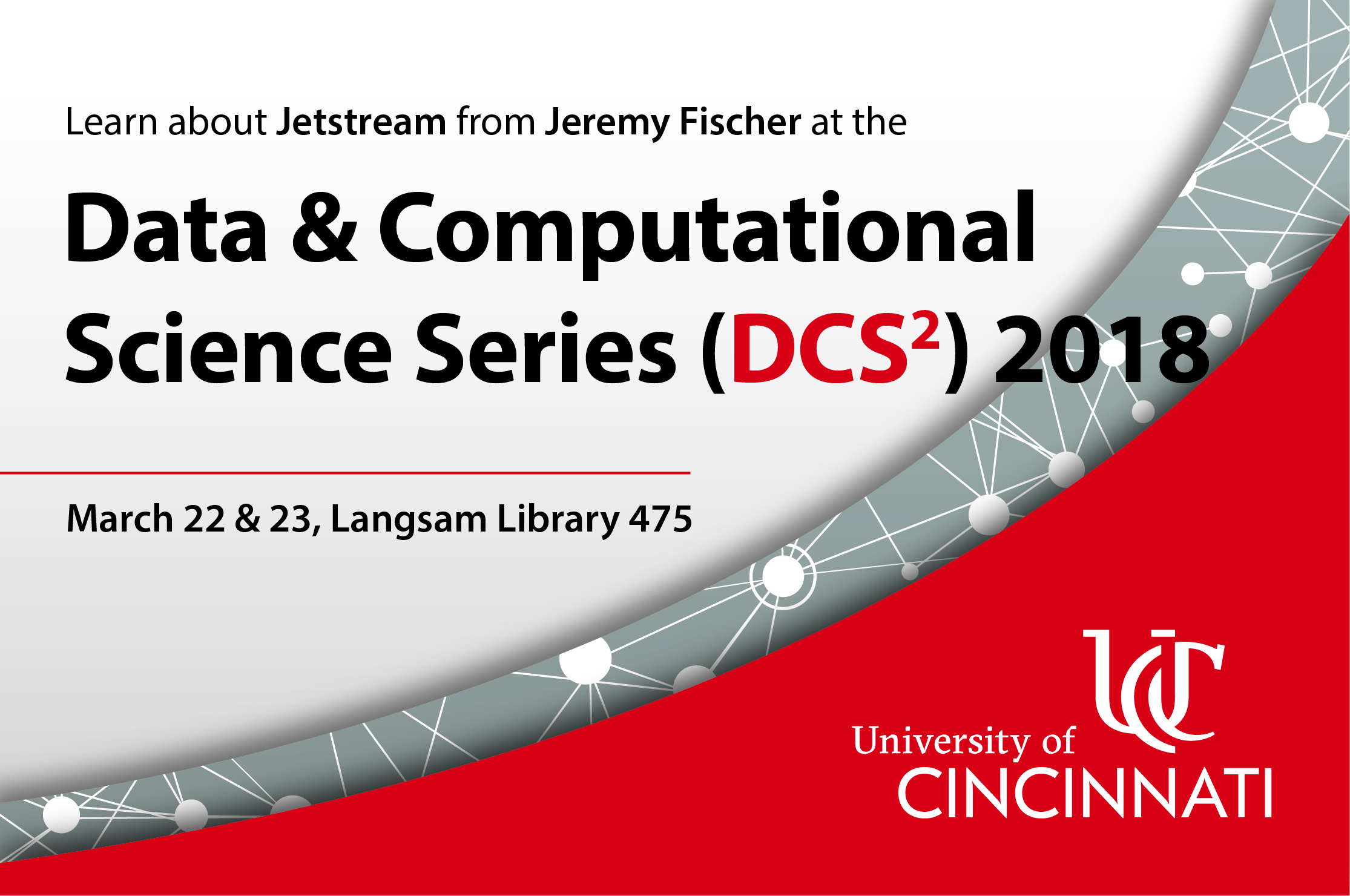 The University of Cincinnati Libraries and IT@UC Research & Development and are pleased to announce the Data & Computational Science Series (DCS2) 2018, a speaker series supported by a Universal Provider award from UC’s Office of the Provost for faculty development.
The University of Cincinnati Libraries and IT@UC Research & Development and are pleased to announce the Data & Computational Science Series (DCS2) 2018, a speaker series supported by a Universal Provider award from UC’s Office of the Provost for faculty development.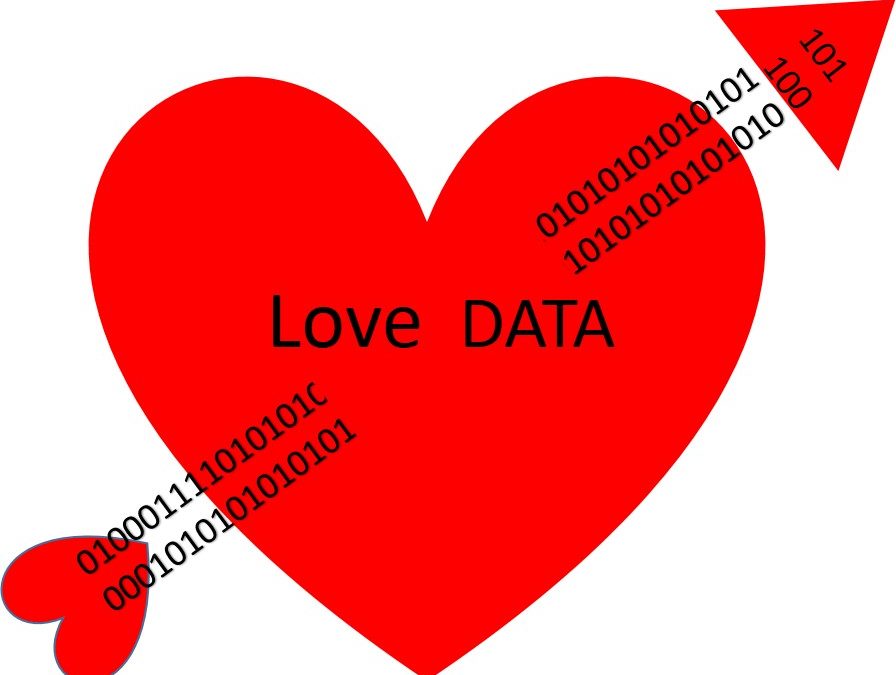
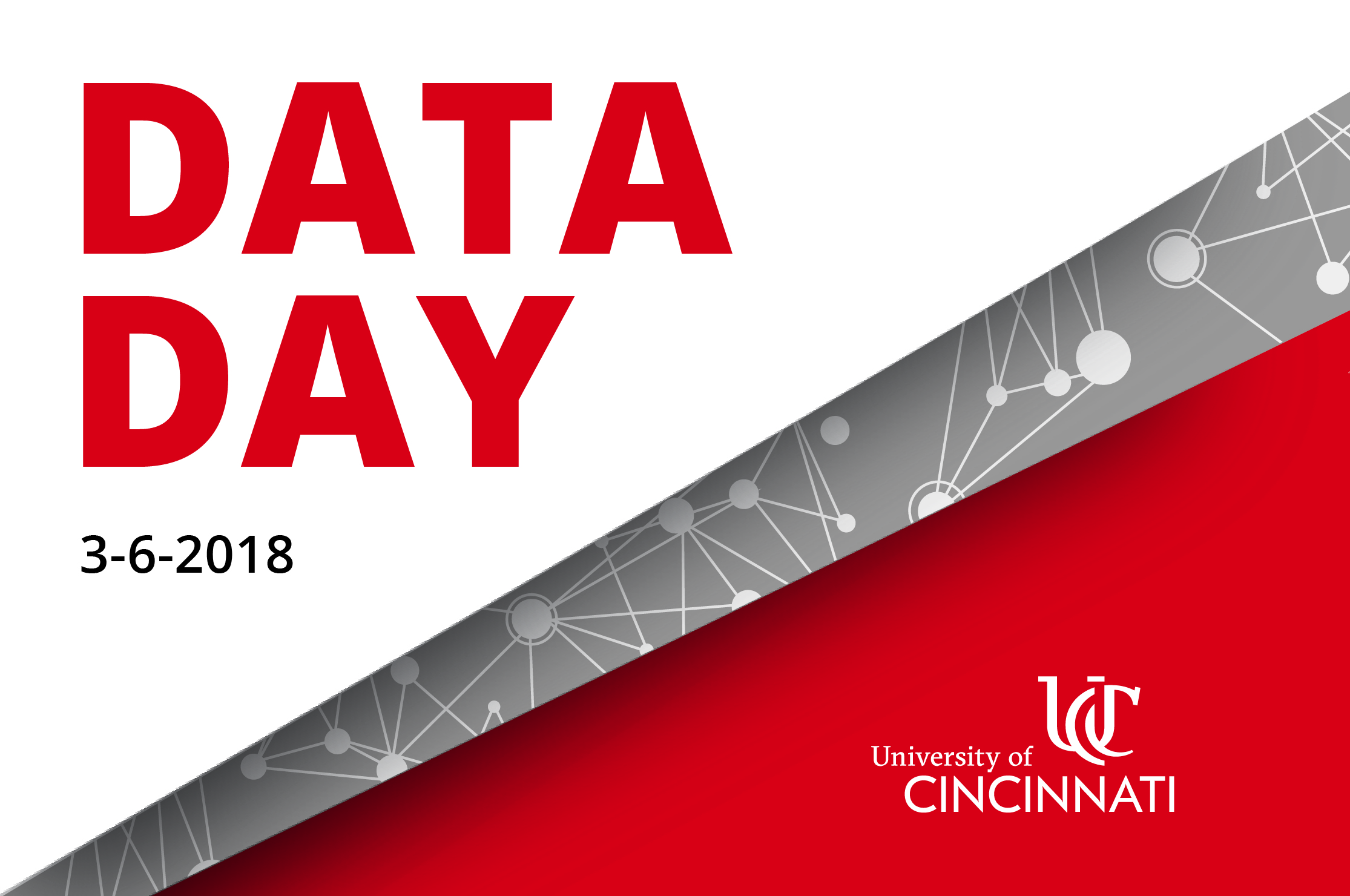 The University of Cincinnati Libraries and IT@UC announce the third annual UC DATA Day. Scheduled for 8:30 a.m.-4:15 p.m., Tuesday, March 6 in Nippert Stadium West Pavilion on UC’s Main Campus (see
The University of Cincinnati Libraries and IT@UC announce the third annual UC DATA Day. Scheduled for 8:30 a.m.-4:15 p.m., Tuesday, March 6 in Nippert Stadium West Pavilion on UC’s Main Campus (see 